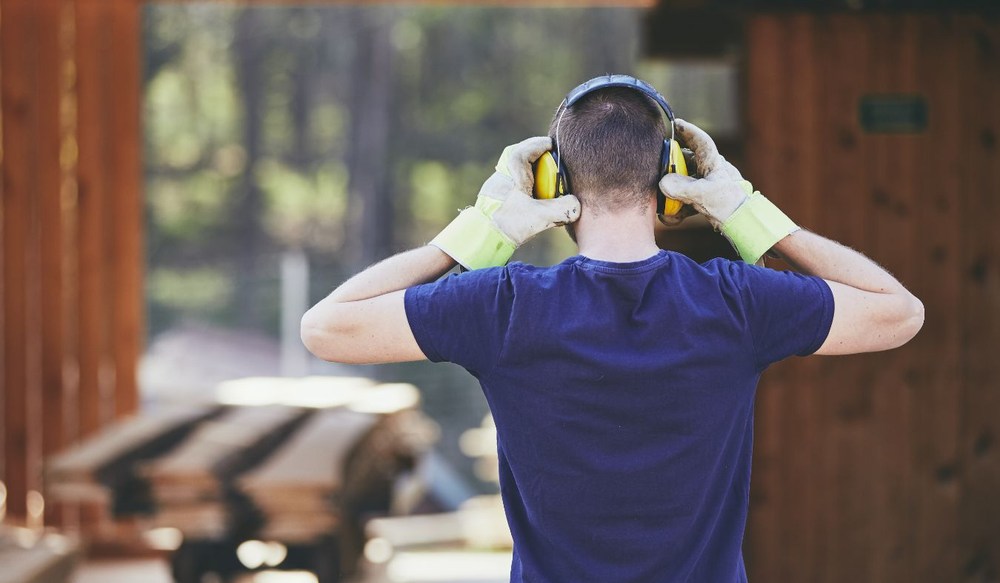Managing Hearing Aid Performance in Heated Indoor Spaces
When the weather turns colder and indoor heating becomes part of daily
Now Offering Earigator Ear Wax Removal At Magnolia & Montgomery locations! Learn More →

By: admin | April 24, 2025
Spring brings change – flowers bloom, temperatures rise and outdoor activities resume. But for those who use hearing aids, this season of renewal comes with unique challenges. Sudden rain showers, increased humidity and seasonal allergies can all affect how well your hearing aids work.
Hearing is central to how we experience daily life – from conversations with loved ones to enjoying music or simply being aware of our surroundings. When hearing aids don’t work properly due to springtime conditions, these everyday experiences become more difficult. You’re not alone if you’ve noticed your hearing aids behaving differently as the seasons change.
Understanding how spring conditions affect your hearing aids is the first step to maintaining clear sound throughout the season. The good news is that with some simple awareness and care, we can prevent many common springtime hearing aid issues before they start. Taking a few precautions now means you can enjoy all the pleasant sounds spring has to offer without interruption.
Spring brings an increase in humidity which can impact your hearing aids. As the temperature rises, so does the moisture in the air. This elevated humidity level can directly affect your hearing aids and potentially impact their performance.
Humidity might be great for your skin and add a freshness to the spring breeze, but it’s not so great for your hearing aids. These advanced devices have delicate electronic components that are sensitive to moisture. Too much humidity can cause condensation to form inside your hearing aid, which might result in distortion or even temporary malfunction.
But don’t worry, this can be managed. Regular cleaning and drying of your devices can help ensure that your hearing aids continue working optimally despite these changes. If you’re living in an area with high humidity levels, it might be worth considering a dehumidifier designed specifically for hearing aids.
Spring showers bring refreshing changes to the environment, but they also introduce challenges for hearing aid users. Moisture is one of the biggest concerns when it comes to hearing device performance, and unexpected rain can expose your devices to damp conditions that may affect their functionality. Even a brief walk in a drizzle or sudden downpour can lead to water seeping into sensitive components, potentially causing sound distortion, muffled audio or even temporary malfunctions.
To keep your hearing aids working properly during wet weather, it’s important to take precautions. Carrying a small umbrella or wearing a water-resistant hat can provide extra protection when you’re caught in the rain. If your hearing aids are water-resistant, they offer some level of defense, but they’re not fully waterproof – so avoid direct exposure to heavy rain whenever possible. After spending time in damp conditions, drying your hearing aids thoroughly and storing them in a dehumidifier overnight can help prevent moisture-related issues.
The arrival of spring brings warmer temperatures, which can impact your hearing aids. The shift from cold winter weather to the warmer spring climate can impact your devices’ efficiency and functionality.
Your hearing aids are essentially tiny computers that are designed to operate best within a specific temperature range. Significant temperature swings can put a strain on these delicate devices and potentially impact their performance. For example, prolonged exposure to higher temperatures might cause your hearing aid batteries to drain faster than usual. However, by storing your devices in a cool, dry place when not in use, away from direct sunlight or other heat sources, you can maintain their optimal performance during these temperature changes.
Pollen may seem harmless, but during peak allergy season, it can accumulate on your hearing aids and affect their performance. These tiny particles can get trapped in microphone openings, vents and other small crevices, potentially blocking sound input and leading to reduced clarity or feedback. If enough pollen builds up, it may interfere with volume control or cause temporary malfunctions that make it harder to hear clearly. For those who spend a lot of time outdoors in spring, exposure to high pollen levels increases the risk of these particles getting inside the devices, especially on windy days.
Beyond clogging key components, pollen can also mix with moisture from sweat or humidity, creating a fine layer of debris that’s harder to remove. This buildup may affect the internal electronics over time, leading to inconsistent performance or requiring professional servicing. If you notice your hearing aids sounding muffled, cutting in and out or responding differently than usual, pollen exposure could be the culprit. While these seasonal changes might not cause permanent damage, they can certainly lead to frustrating disruptions in your daily listening experience.
Spring also brings allergy season. While most people are familiar with common allergy symptoms like sneezing and watery eyes, not everyone realizes that allergies can also impact hearing health.
Allergies cause histamines to be released in your body, which leads to inflammation. This inflammation can occur in your ears as well, leading to a feeling of fullness or pressure, and in some cases, even temporary hearing loss. Here are a few steps to combat these effects on your hearing health during allergy season:
The change of season also brings changes in our activities. Spring invites us outside for picnics, gardening, sports events and more. But have you thought about how these activities might affect your hearing aid care routine?
Gardening, for example, exposes your hearing aids to elements like dirt and sweat that could potentially affect their performance. Similarly, loud noises from springtime sports events or outdoor concerts can put strain on your hearing aids over time.
Being mindful of these potential impacts and adjusting your care routine accordingly can go a long way. Regular cleaning after outdoor activities or considering noise-reducing features for loud environments can help maintain your hearing aids’ optimal performance during springtime festivities!
When attending outdoor events, it’s easy to overlook the impact of loud environments on your hearing health. Whether it’s a concert, a sporting event or a festival, these settings often come with high noise levels that can damage your hearing over time. Sounds above 85 decibels, which is common at many outdoor events, can pose a risk if you’re exposed for prolonged periods. It’s essential to be mindful of the volume levels and take steps to protect your ears. The closer you are to the source of the sound, the more likely it is to affect your hearing, especially if you’re attending events with large crowds or live music performances.
One of the best ways to protect your hearing at these events is by wearing earplugs designed for high-noise environments. These can reduce the intensity of the sound without distorting it, allowing you to still enjoy the experience while preserving your hearing. Another way to protect your ears is by taking breaks from the loud areas, moving to quieter spots when possible and limiting your exposure time.
As spring brings warmer temperatures and higher humidity levels, hearing aid users may start to notice issues with their battery life. Heat can cause hearing aid batteries to drain faster, leading to more frequent replacements or shorter usage times. Spring rains can also introduce added moisture, which, combined with the warmer air, can affect the battery’s performance and the overall function of your hearing aids. To keep your devices performing at their best, it’s essential to store them in a cool, dry environment and avoid leaving them in areas with high humidity or direct sunlight.
During spring, consider using a hearing aid dehumidifier to help prevent moisture buildup and extend the lifespan of your batteries. Rechargeable batteries may also offer more consistency in fluctuating temperatures, providing a reliable option for those facing battery-related issues. Regularly checking your batteries and cleaning your devices can help you avoid unexpected problems, ensuring your hearing aids continue to provide clear sound, no matter the season.
If you find that your hearing aids are acting up during the spring months, there are a few signs that should prompt you to schedule an appointment with your hearing specialist. First, if your hearing aids are experiencing issues with sound quality – like muffled sounds, feedback or distortion – that persist even after cleaning or battery replacement, it may indicate a more serious issue that requires professional attention. Changes in performance caused by moisture exposure, pollen buildup or extreme temperature fluctuations may be difficult to address on your own, so it’s a good idea to have your specialist examine them.
Another reason to see your hearing specialist is if you’re noticing discomfort or pain when wearing your hearing aids during spring activities. Spring’s seasonal changes can affect how well hearing aids fit or cause irritation in the ears due to allergens. If cleaning or adjusting your devices doesn’t relieve discomfort, your hearing specialist can help ensure your hearing aids are properly fitted and functioning correctly, offering solutions that reduce irritation or other problems caused by the season’s changes.
As spring continues to bring fresh beginnings, it’s important to stay proactive about maintaining your hearing aids through the season’s unique challenges. By being mindful of the effects of humidity, pollen and fluctuating temperatures, you can prevent many common issues that can interfere with your hearing aid performance. Regular cleaning, proper storage and being aware of environmental changes will go a long way in ensuring your hearing aids remain reliable.
When you stay on top of spring-related maintenance and reach out for professional assistance when needed, you can enjoy all the vibrant sounds of the season with ease. Whether you’re savoring the chirping of birds, the rustling of leaves or engaging in lively conversations, taking care of your hearing aids ensures that nothing will stand in the way of your hearing enjoyment this spring.
At Clark Hearing, our team is always here to provide additional guidance and support as you adjust to the seasonal changes. For more information or to schedule a consultation at one of our convenient Texas locations, give us a call at: Magnolia: (281) 789-4874, Shenandoah: (281) 363-2847 or Tomball: (281) 351-1955.
Tags: hearing aid basics, hearing aid repair, over-the-counter hearing aids

When the weather turns colder and indoor heating becomes part of daily
By: admin | January 19, 2026

Fall brings cooler weather and plenty of outdoor activities, but it also
By: admin | November 18, 2025

As you get older, maintaining your hearing becomes increasingly important
By: admin | August 21, 2025
